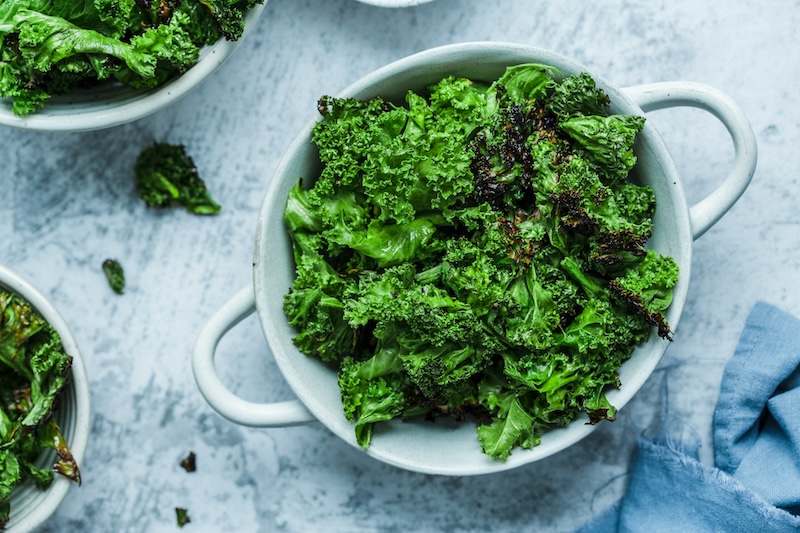As the monsoon pours down, it’s essential to reconsider your source of hydration. Recent studies reveal that rainwater, regardless of its remote...
Vous n'êtes pas connecté
 - POPDIARIES.COM - A La Une - 09/07/2024 08:20
- POPDIARIES.COM - A La Une - 09/07/2024 08:20
EU Food Safety Authorities Discover Cancer-Causing Chemicals in 527 Indian Food Products: Health Alert Issued
In a startling revelation, European Union food safety authorities have uncovered the presence of cancer-causing chemicals in hundreds of food products imported from India. This discovery has sent shockwaves through the food industry and prompted immediate action from health officials. The Scale of the Problem The investigation identified 527 Indian food products contaminated with potentially carcinogenic substances. This wide-ranging issue affects various food categories, raising concerns about the safety of imported goods and the effectiveness of current screening processes. Chemicals Identified and Their Risks Experts have isolated several harmful chemicals in the affected products. We'll explore the nature of these substances and their potential health impacts, including their link to cancer and other serious health conditions. EU's Response and Health Alert In light of these findings, EU authorities have issued a comprehensive health alert. We'll detail the steps being taken to protect consumers, including product recalls, import bans, and increased scrutiny of Indian food imports. Impact on India-EU Trade Relations This incident is likely to have far-reaching consequences for trade between India and the European Union. We'll analyze the potential economic fallout and diplomatic tensions arising from this food safety crisis. Consumer Guidelines: What You Need to Know For concerned consumers, we'll provide essential information on identifying potentially affected products, steps to take if you've purchased these items, and how to report suspicious food products to authorities. India's Response and Remediation Efforts We'll look at how the Indian government and food industry are responding to these allegations, including any plans for improving food safety standards and quality control measures. The Future of Food Safety Regulations This incident highlights the need for stricter international food safety protocols. We'll discuss potential changes in global food safety regulations and how they might affect consumers and the food industry moving forward.
Articles similaires
Is it safe to drink rainwater? Scientists reveal the answer
As the monsoon pours down, it’s essential to reconsider your source of hydration. Recent studies reveal that rainwater, regardless of its remote...
Caribbean Task Force on Food Safety commits to eliminating food risks
The Caribbean Task Force on Food Safety (CTFS) met for its 2025 annual meeting at the Sir Frank Stockdale Building at the UWI, St Augustine on June 3...
Caribbean Task Force on Food Safety commits to eliminating food risks
The Caribbean Task Force on Food Safety (CTFS) met for its 2025 annual meeting at the Sir Frank Stockdale Building at the UWI, St Augustine on June 3...
Drug Abuse: Stop sharing prescribed medicines with others – Physicians
By Chidinma Ewunonu-AlukoThe public has been advised against the practice of sharing prescribed medications with others, despite similarities in...
Youth-Led Solutions For Myanmar’s Waste Crisis Amid Political Instability – Analysis
By Emilia Khine Youth in Myanmar are addressing the worsening waste crisis through grassroots efforts and circular economy solutions despite...
Travelling to Kerala from UAE? Nipah virus triggers high alert
Dubai: Health authorities in Kerala have issued a high alert in the districts of Kozhikode, Malappuram, and Palakkad after two suspected cases of the...
Travelling to Kerala from UAE? Nipah virus triggers high alert
Dubai: Health authorities in Kerala have issued a high alert in the districts of Kozhikode, Malappuram, and Palakkad after two suspected cases of the...
Evolution Of China’s Biotech Industry: Crouching Tiger, Hidden Dragon – Analysis
By Lakshmy Ramakrishnan Biotechnology is a critical emerging technology holding significant potential in addressing various challenges,...
These natural foods can help fight cancer
While no single food can prevent or cure cancer, some foods have natural compounds that may help the body fight cancer cells and reduce the risk of...
Les derniers communiqués
-
Infinite Uptime Unlocks Production Reliability for Heavy Industries with PlantOS™ at Global Steel Dynamics Forum
Infinite Uptime - 18/06/2025
-
Majra – National CSR Fund Honours Top 20 CSR Projects At Inaugural Sustainable Impact Challenge 2025
National CSR Fund - 05/06/2025
-
Aatmanirbhar Bharat: Raksha Mantri approves Advanced Medium Combat Aircraft Programme Execution Model through industry partnership
Ministry of Defence - 27/05/2025
-
Government Restores RoDTEP Benefits for AA, SEZ, and EOU Exports
Ministry of Commerce and Industry - 27/05/2025
-
Coal Imports During FY 2024-25 Drops by 7.9 % Compared to FY 2023-24
Ministry of Coal - 27/05/2025
-
India Records USD 81.04 Billion FDI Inflow in FY 2024–25
Ministry of Commerce and Industry - 27/05/2025
-
Happiest Health Launches Happiest Physio Clinic in Koramangala, Bengaluru
Happiest Health Systems Private Limited - 26/05/2025
-
Shieldworkz Expands OT Cybersecurity Offerings to Tackle Emerging Threats and Posture Management Needs
Shieldworkz - 23/05/2025
-
Kailash manasarovar yatra to begin in june; computerized draw selects 750 pilgrims
Ministry of external affairs of India - 21/05/2025




